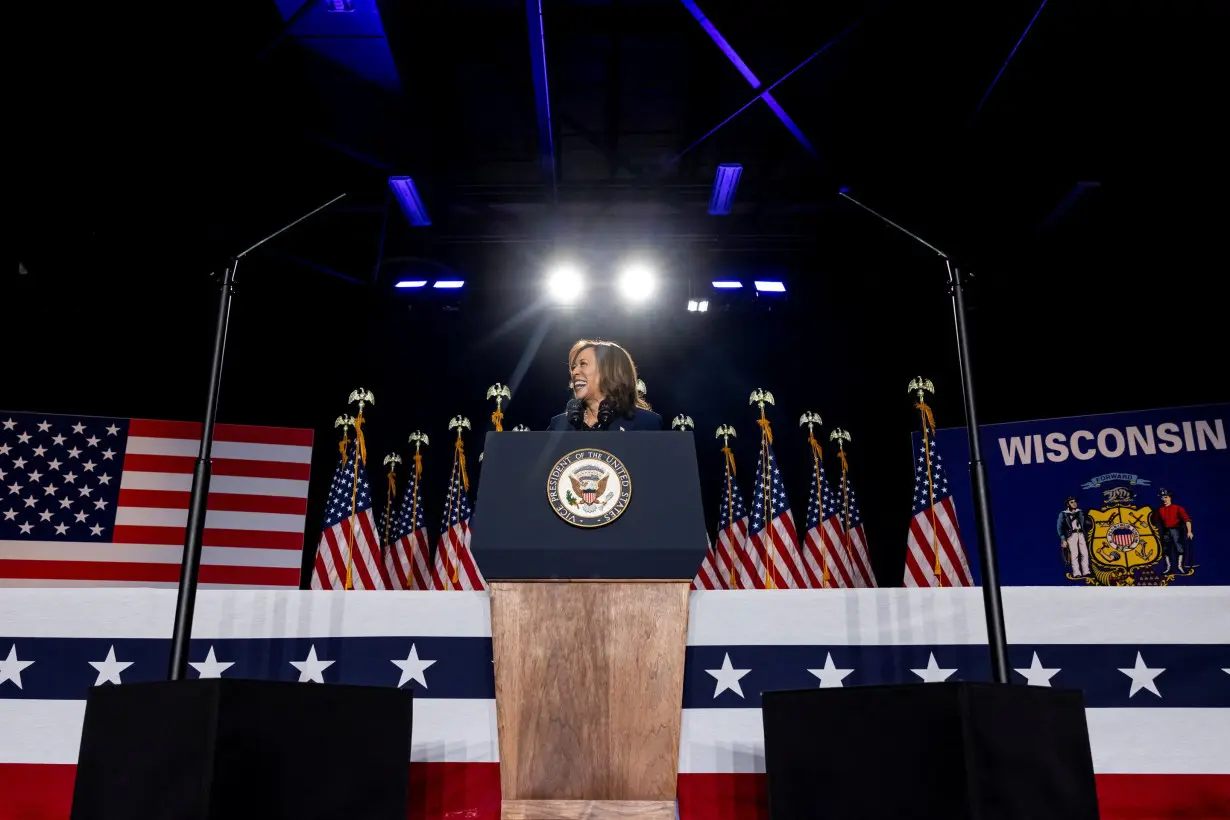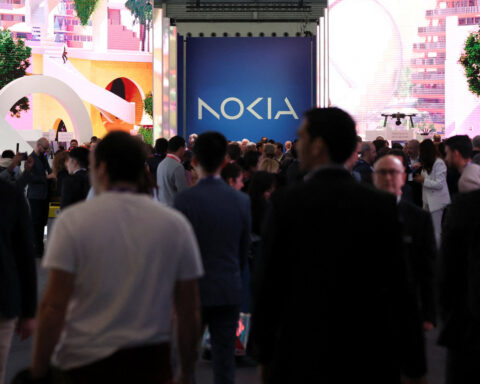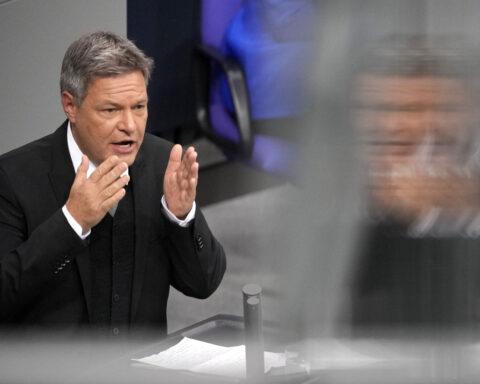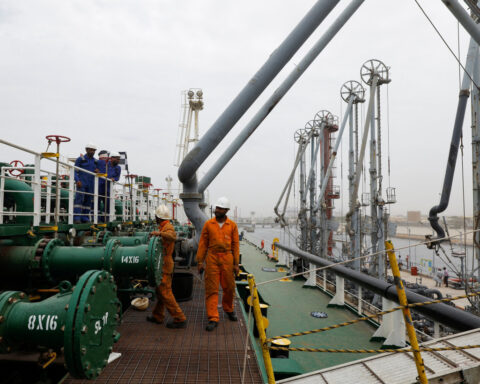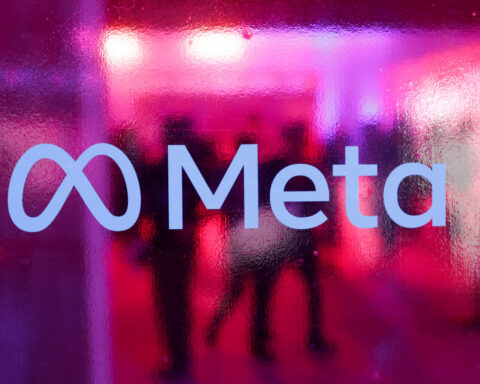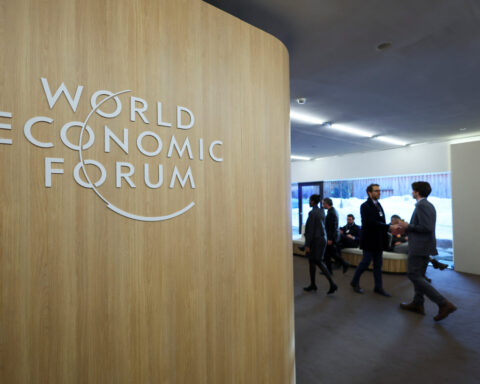By Mike Dolan
LONDON (Reuters) -Corporate planners must have a headache as the U.S. political pendulum swings at its fastest rate since World War Two and the related policy churn may act as a drag on future investment.
It's easy to get blasé about increasingly polarised U.S. politics, and history may be a poor guide to many unprecedented developments unfolding. But switching economic policy tack every four years surely takes some toll for those needing to think a decade or more hence.
And this period is indeed highly unusual.
Whoever wins in November, Vice President Kamala Harris' likely nomination as Democrat candidate after Joe Biden stepped aside last weekend means the White House will change hands for the third election in a row for the first time in more than a century.
A win for former President Donald Trump would see the presidency switch parties at a third consecutive vote for the first time since the late 19th century.
There were, of course, seven separate presidents between 1960 and 1984 - though that was due to the assassination of John F. Kennedy and resignation of Richard Nixon rather than election outcomes per se. The party of the president changed only four times in that period.
A win for Trump this year, however, would see the fifth elected change of party in the White House over a similar time frame since 2000.
Congressional calculus is another matter, critical as it is to the policy effectiveness of any administration.
But there have now been five two-year periods since 2000 when the White House, Senate and House have all been controlled by the same party, compared to just three over the prior 30 years. And it's those "trifecta" periods that are most impactful.
Perhaps the rapid ebbs and flows are just the new normal that everyone has to accept.
But if you're a company trying to gain visibility on taxation, trade, immigration and jobs, energy or financial regulation, your horizon must be shortened given the gulf between prospective presidents and parties and the speed at which they're revolving power.
EDGY YEAREND
And that's before you even begin to calculate who might win this year's contest - after two weeks in which Democrats have switched candidates from Biden to Harris and Trump narrowly escaped assassination.
While Trump still seems to have an edge opinion polls in some key marginal states and remains a clear favorite in betting markets, the situation seems fluid. Bookmakers' ascribed probability on his win already narrowed from as high as 70% early last week before Biden stood aside to less than 60% now.
The latest nationwide Reuters/Ipsos poll conducted this week also surprised and showed Harris opening up a marginal 2 percentage point lead over Trump - 44% to 42%.
That uncertainty is high is an understatement, even if financial volatility gauges remain peculiarly low and most markets are still buoyant.
Noses to the windscreen, financial markets had started to bet tentatively on so-called Trump trades earlier this month.
Some of those trades - steepening the Treasury yield curve on fiscal concerns or buying oil stocks and selling renewable energy ones, switching to small caps from globally-exposed megacaps or buying bitcoin, and even selling Chinese shares or Mexico's peso - have all gone a bit flat again.
There's three and half more months of this to go.
Yet for companies at the coalface of the economy trying to plan years into the future or trade overseas, unanswered questions about tax, tariff levels and possible retaliation, the size of the workforce due to differing immigration policies and even long-term borrowing costs must be difficult.
UNCERTAINTY INDEX
Beyond financial markets, one measure of the power churn often cited is the Economic Policy Uncertainty index, which is compiled mostly from media stories on such issues.
Not unlike financial markets, that index was relatively subdued through the spring of this year. But it has tripled since June to its highest since last October.
While absolute levels are still below the pandemic shock or even the regional banking wobble early last year, the direction of travel is clear.
And despite decent economic and earnings growth more broadly, business sentiment captured by the ISM surveys of manufacturing and services firms pointed to a rare twin contraction of activity for both sectors last month.
To be sure, NFIB's small business survey showed some uptick last month and small cap stocks seemed to get a burst of optimism on Trump's chances. But the overall sentiment gauge from the survey remains well below long-term averages.
None of these gauges necessarily presages a freeze of corporate activity, but they remain subdued in contrast to the seeming nonchalance on financial markets and still buoyant top-line growth levels.
Water off a duck's back?
Some investors think corporate America is now somewhat inured to the political upheavals beyond some temporary second-guessing.
"For all the consternation around election winners and losers, historically the election effect is fairly short lived with the earnings cycle ultimately shaping market performance in the wake of the election," said Garrett Melson, portfolio strategist at Natixis IM.
"Corporates have proven time and again their dynamism and ability to adapt, suggesting investors should have confidence in markets' ability to shake off any short term impacts of election developments," Melson said, adding the economy still looked strong and the independent Federal Reserve was set to ease rates.
That may well be true - but if the political pendulum keeps swinging at this rate they need every ounce of that "dynamism".
The opinions expressed here are those of the author, a columnist for Reuters.
(By Mike Dolan; Editing by Jamie Freed)

 Germany sees meat exports to EU continuing after foot-and-mouth case
Germany sees meat exports to EU continuing after foot-and-mouth case
 Parliament speaker to lead Taiwan delegation to Trump's inauguration
Parliament speaker to lead Taiwan delegation to Trump's inauguration
 German economy contracted 0.2% in 2024
German economy contracted 0.2% in 2024
 Middle East latest: Palestinian prime minister says Palestinian Authority should run Gaza in future
Middle East latest: Palestinian prime minister says Palestinian Authority should run Gaza in future
 Nokia signs multi-year patent license agreement with Samsung
Nokia signs multi-year patent license agreement with Samsung
 Irish parties secure 'comfortable majority' for new government
Irish parties secure 'comfortable majority' for new government
 Bayern Munich signs US youngster Bajung Darboe from LAFC
Bayern Munich signs US youngster Bajung Darboe from LAFC
 Novak Djokovic breaks a tie with Roger Federer for the most Grand Slam matches in tennis history
Novak Djokovic breaks a tie with Roger Federer for the most Grand Slam matches in tennis history
 China's RedNote: what you need to know about the app TikTok users are flocking to
China's RedNote: what you need to know about the app TikTok users are flocking to
